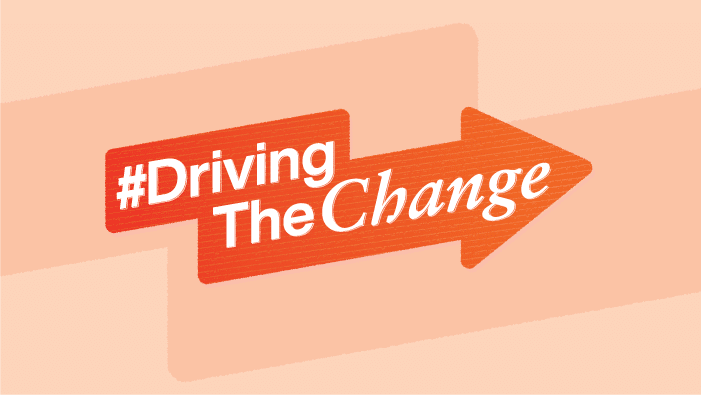Listen to this blog
Termed as one of the “sexiest jobs in 2021” by Harvard Business School, data science jobs have surely created a wave in the global workforce. Recruiters today are throwing huge salaries on professionals who possess the skills to take on roles like Data Scientists, Data Engineer, Data Analysts, etc. So if you are looking to get a job in this in-demand field, then you need the right skill set to land a job in big companies. The first question that arises is- Which data science course should I pursue? Well, there are a plethora of online data science courses available to upskill yourself and get a fat salary in India as a Data Scientist.
A masters in data science can help elevate your career as a data scientist. An MBA in Data Science and an MSc in Data Science can be among your top options to excel in your career.
Read more: Rising demand for data science in India
Let’s take a deeper look at how MBA data science vs MSc data science helps in mastering data science and in progressing your career.
What is an MBA in data science?
MBA in data science is a postgraduate course that deals with interpreting technical infrastructure data, designed to equip the candidates with data science skills including interpreting, research, processing, creating data, and more. In simple words, an MBA in data science integrates business management principles with a strong emphasis on data science and analytics.
What is an MSc in data science?
MSc in data science is a specialized master’s degree designed to equip students with the skills and knowledge needed to analyze and interpret complex data sets, extract valuable insights, and make informed decisions. It exposes you to various data science tools and skills required to make data-driven decisions for businesses.
Eligibility criteria: MBA data science vs MSc in data science
Manipal Academy of Higher Education offers an MBA program in Data Science on the Online Manipal platform to equip candidates with the latest and most in-demand skills and tools in the field of data science.
Here are the eligibility criteria for the MBA in data science –
| Educational Qualification | Indian Candidates – 10+2+3 year graduate degree in Statistics / Mathematics / Computer Science / Engineering / Technology or any other discipline with a minimum of two years of learning Mathematics or statistics from a recognized university/institution with an equivalent qualification recognized by the Association of Indian Universities (AIU) International Candidates- Candidates must have completed a graduation degree certificate of equivalence from the Association of Indian Universities required from students with a foreign education to apply to any university in India. |
| Professional Experience | Work experience is desirable |
MAHE also offers an online MSc in data science program, specially designed for individuals looking to develop core data science skills and knowledge in tools.
Here are the eligibility criteria for the MSc in data science-
| Educational Qualification | Graduates (10+2+3) in any discipline from recognized universities/ institutions, or an equivalent qualification as recognized by the Association of Indian Universities (AIU) with a minimum of 50% of marks or equivalent grade. |
| Professional Experience | One year of work experience in reputed organizations |
MBA data science curriculum
Pursuing an MBA in data science requires a combination of robust technical knowledge and practical experience. It gives them a potential edge over other competitors in the field. The skills required to master data science are acquired from the below syllabus.
- Database management
Database management offers an experiential learning opportunity to build basic and advanced programing skills.
The subject covers the languages, applications, and programing used to develop and maintain business databases. In the database system, the emphasis is on developing the candidates’ skill sets in object modeling, relational data models, and the physical characteristics of databases.
- Machine learning algorithms
Machine learning uses algorithms and mathematical models to develop machines that can solve problems like human minds. The Machine learning method has programing assignments for the candidates to practice and gain hands-on experience. Here, the math needed to better understand each algorithm is comprehensively explained, with calculus explanations and linear algebra.
- Probability and probability distribution
A substantial part of data science is learning about the behavior and properties of variables. In short, the probability and probability distribution show the way for the candidates to represent the specific values concerning the variable and the respective variability.
- Statistical Inference
In data science, descriptive statistical inference explains the data to users without making any inference from the data. Simply put, inferential statistics aid in claiming conclusions from the sample data to analyze the parameters of the population. This subject will help the students understand the target variable’s behavior.
- Applied data analytics
The section focuses on learning analytics software and techniques that must be implemented directly in the industry. The knowledge of analytic tools, along with the data mining and machine learning approaches, will be analyzed in the subject. This will help students to enhance their capacity to examine real-world challenges and understand the possibilities of applications.
Read more: Top companies that work on data science
MSc data science curriculum
Each module in the course highlights the tasks, including storing, analyzing, and recording data for predicting future insights extracted from structured to unstructured data. Here’s an overview of the M.Sc in data science curriculum-
- Computational mathematics
The computational mathematics section in data analysis deals with mathematical modeling, numerical analysis, and computational aspects to analyze and solve complex problems. It also helps students gain the knowledge and experience to implement the productive parallel algorithm to enhance performance.
- Programing in SAS for analytics
SAS, also known as Statistical Analysis System, is the most productive and popular software needed for accurate data analysis. The section enables the candidates to follow a programmatic-based approach to access the analytical abilities of SAS, in every stage of the data life cycle, including discovery and deployment.
- Applied data analytics
Applied data analytics in the course focuses on data analytics and applied areas to provide comprehensive details in concepts and techniques. It exposes the students to various tasks, including organizing, cleaning, analyzing, representing, and visualizing large amounts of data. Moreover, it also offers the opportunity to gain in-depth knowledge in computation and statistics.
- Programing with R and Python
In data science, Python is a general programming language used to develop and deploy various projects. On the other hand, R is a statistical language that plays a significant role in analysis and visual data representation. The section expands candidates’ knowledge in data analysis, enabling them to stimulate better performance.
Read more: Why should you opt for MSc in data science?
Careers after MBA in data science
MBA in Data science graduates offer immense job opportunities in various technology domains, bringing them better growth and a bright future. Some of the sought-after careers options for an MBA in data science are-
Data Analytics Manager
A Data Analytics Manager is a professional who oversees and manages the data analytics function within an organization. This role involves leading a team of data analysts or data scientists and working closely with other departments to derive actionable insights from data that can inform business decisions. The average salary of a Data Analytics Manager in India is INR 26 LPA.
Application Architect
An application architect or software architect is an individual who operates within the scope of one’s system while understanding all the interactions. They have to work with clients on planning and designing the applications, addressing the coding or programming issues, and even overseeing a team of developers. The average salary of Application Architect is INR 29 LPA.
Data Scientist
The role of a data scientist is to make value of the given data. They must proactively collect information from various sources and examine it for better understanding. It will aid in learning how the business works and building high-quality integration systems to develop effective solutions.The average salary of a data scientist in India is INR 15 LPA, and is said to increase based on your career path and the company you work in.
Machine Learning Engineer
The responsibilities of Machine learning engineers are to design and develop machine learning systems, run tests and experiments and implement appropriate algorithms. The primary role of the professional is to shape and develop accurate predictions. The average salary of a Machine Learning Engineer in India is INR 12 LPA.
Data Security Analyst
A Data Security Analyst is responsible for safeguarding an organization’s computer systems, networks, and data against security breaches and unauthorized access. The role is crucial in the modern digital landscape, where cyber threats continue to evolve, posing risks to sensitive information and critical infrastructure. The average salary of a Data Security Analyst in India is INR 6.2 LPA.
Read more: Does data science require coding?
Careers after MSc in data science
The demand for candidates who have completed their master’s in data science is spiking in the current era. Below are some of the most lucrative career opportunities after an M.Sc in data science.
Program Manager
A program manager’s primary responsibility is to help an organization achieve its goals. They also play a key role in coordinating the effort between different projects and departments. In short, they oversee the entire program with solid attention to implementation in executing strategy. The average salary of a program manager in India is INR 18 LPA.
Predictive Modeler
A predictive modeler is a professional who specializes in developing predictive models using statistical analysis, machine learning algorithms, and data-driven techniques. The primary goal of a predictive modeler is to create models that can forecast future trends, behaviors, or outcomes based on historical data patterns. The average salary of a Predictive Modeler in India is INR 13 LPA.
Data scientist
A data scientist is a responsible individual who develops an effective and data-driven solution customized to meet an organization’s specific needs. An ideal candidate must run analytical experiments sequentially through appropriate data and project design. The average salary of a data scientist in India is INR 15 LPA.
AI Engineer
An AI (Artificial Intelligence) engineer is a professional who specializes in designing, developing, and implementing artificial intelligence solutions. AI engineers work on creating systems and applications that can perform tasks that typically require human intelligence, such as natural language processing, image recognition, problem-solving, and decision-making. They are at the forefront of advancing technologies that involve machine learning, deep learning, and other AI techniques. The average salary of an AI Engineer in India is INR 11.6 LPA.
Data Engineer
A data engineer’s primary responsibility is gathering, managing, and converting raw data into useful insights. They must analyze various requirements and implement effective database techniques to build a robust database architecture. Their role also extends to support the data scientists by helping them with the mining, modeling, and production of data. The average salary of a Data Engineer in India is INR 9 LPA.
MBA in data science or MSc in data science: What’s best for you?
You can explore different career paths with MBA in data science and MSc in data science. Here’s a short comparison between the two to help you decide what’s best for you.
| MBA in data science | MSC in data science |
|---|---|
| Along with strong business knowledge and foundations, you will learn how to make data-driven decisions for businesses | You will gain strong technical expertise and can explore technical roles in data-driven organizations |
| This program gives a broader perspective of how data science is applied to business areas like marketing, finance, etc. | This program gives a deeper understanding of data science tools and skills like data mining, visualization, statistics, etc. |
| You will learn key subjects like business communication, database management, entrepreneurship, machine learning methods, statistical inference, applied data analytics and more. | You will learn key subjects like deep learning & text mining, Bayesian statistical modeling, programming with R & Python, and stochastic processes |
Final thoughts
Pursuing a masters in data science from a premium university will greatly contribute to your CV as well as help you establish a successful career in this in-demand domain. If you are looking for the best online data science courses, look no further than Online Manipal and kick-start your career in the flourishing field of data science. Simply put, data science is all about the present and future. Good knowledge and understanding of this specialized field will keep you up with the ever-evolving industry, opening doors for exciting and lucrative job opportunities.
Read more: Data science degree vs data science certification
Prepare for your next career milestone with us
















